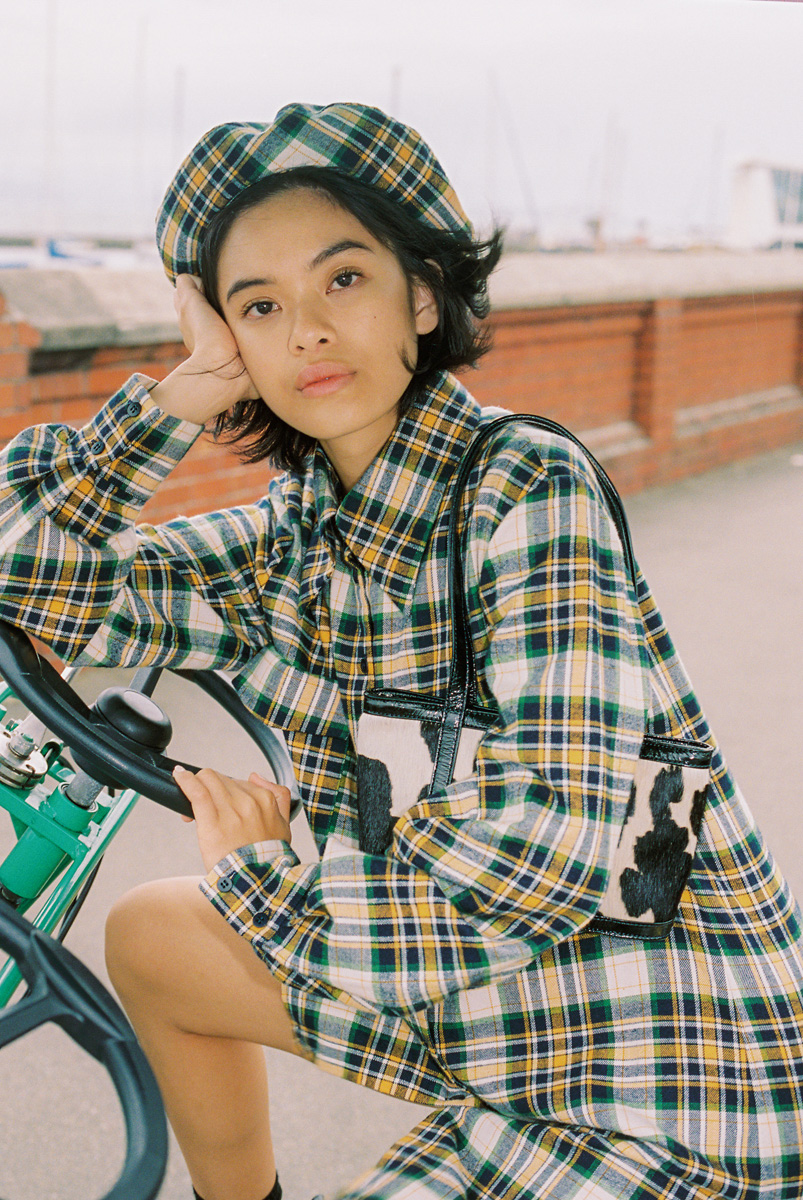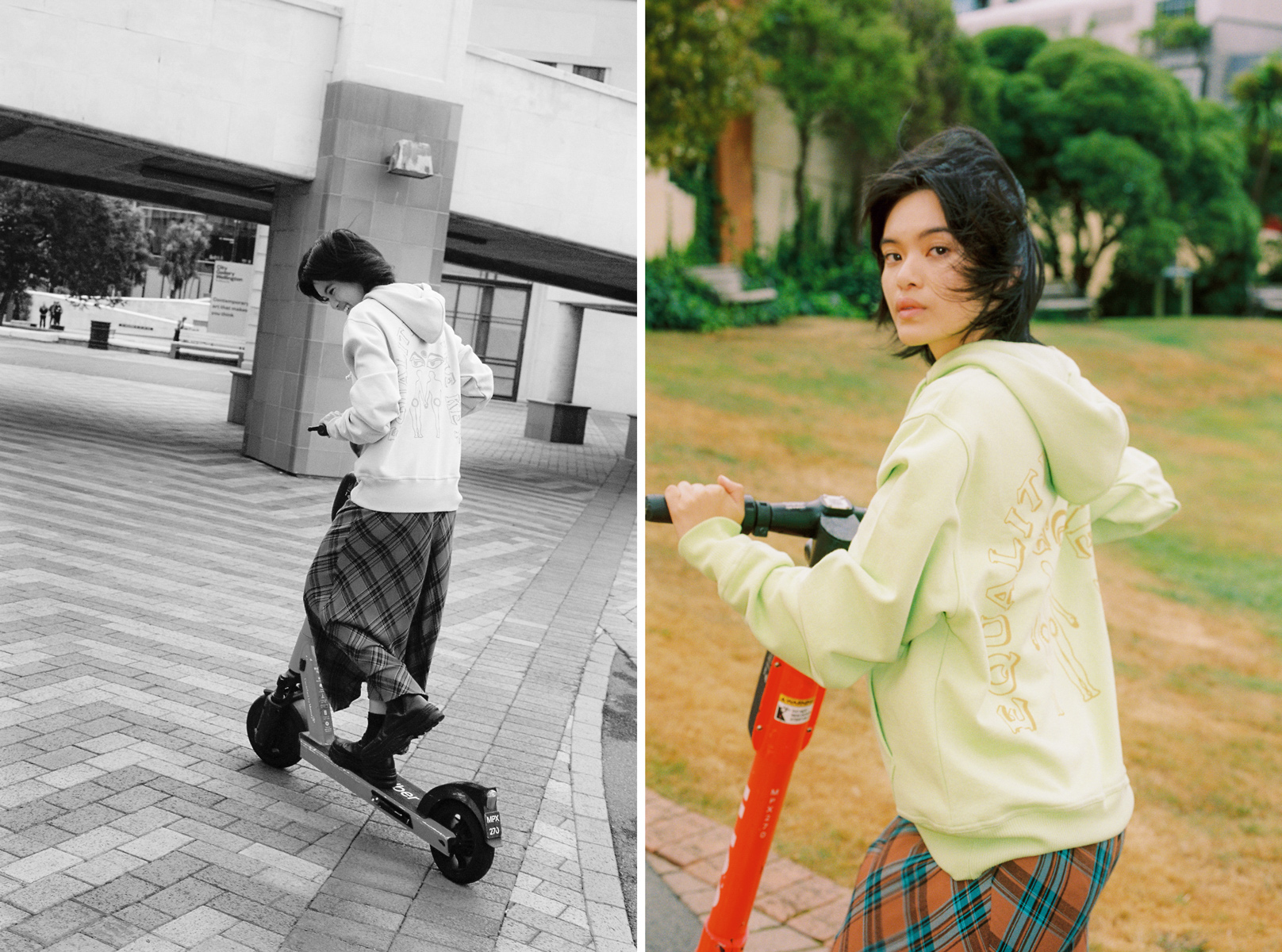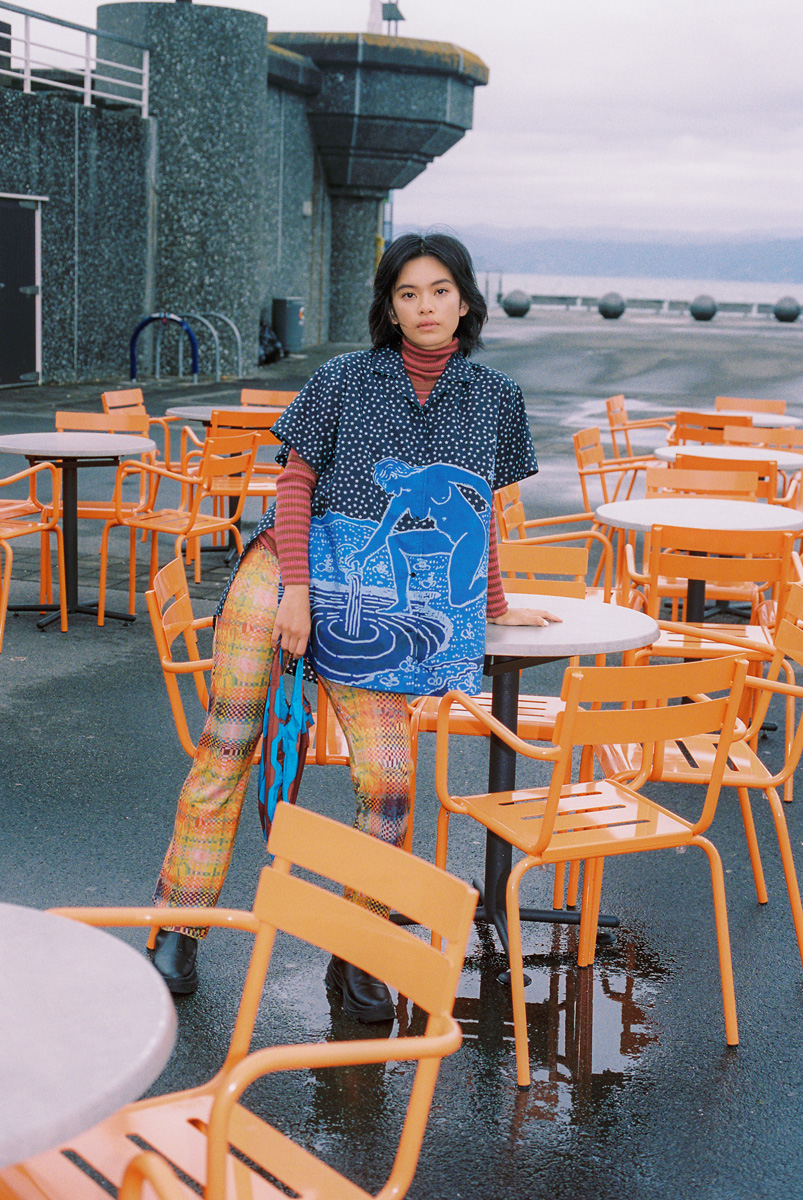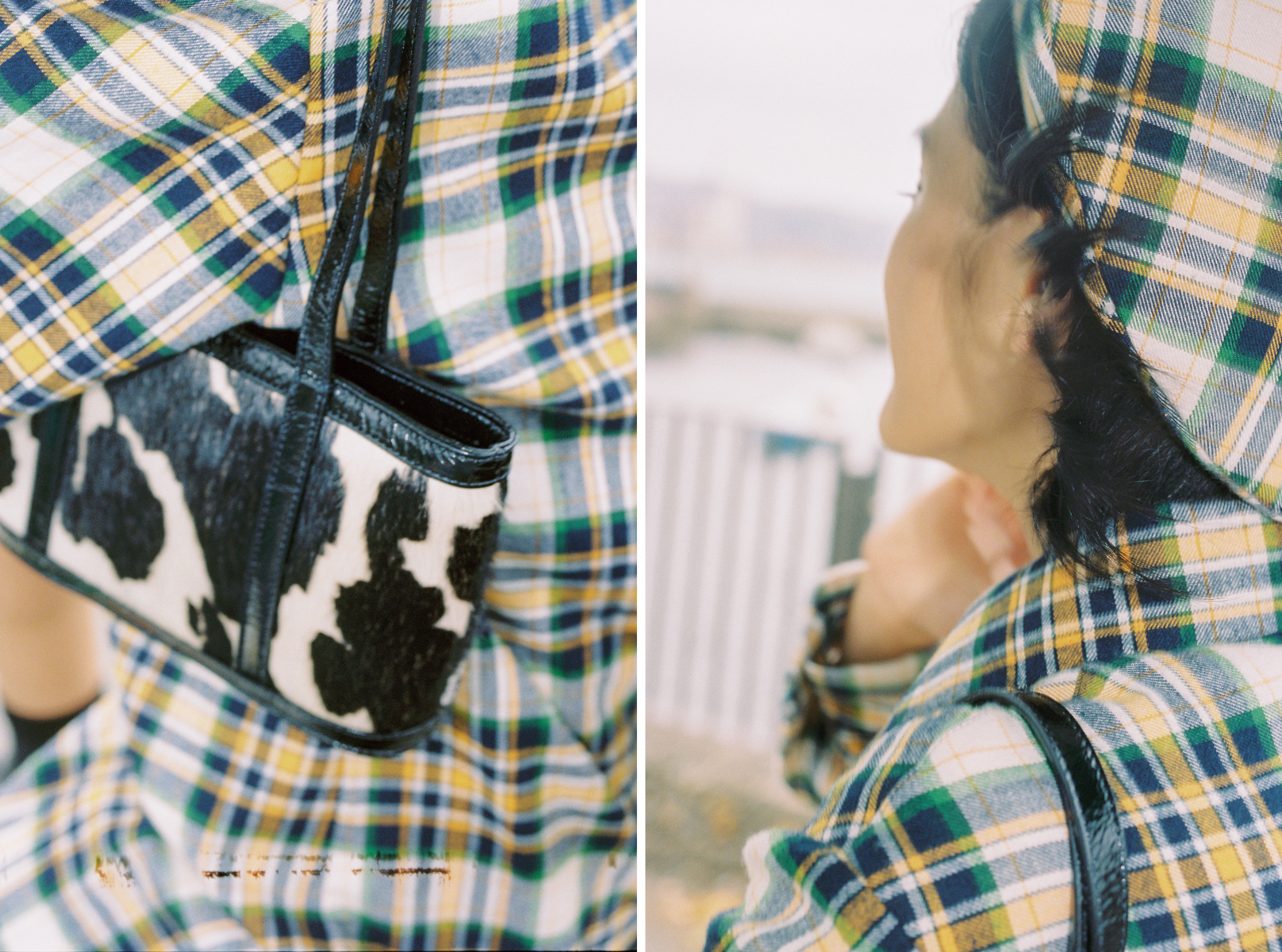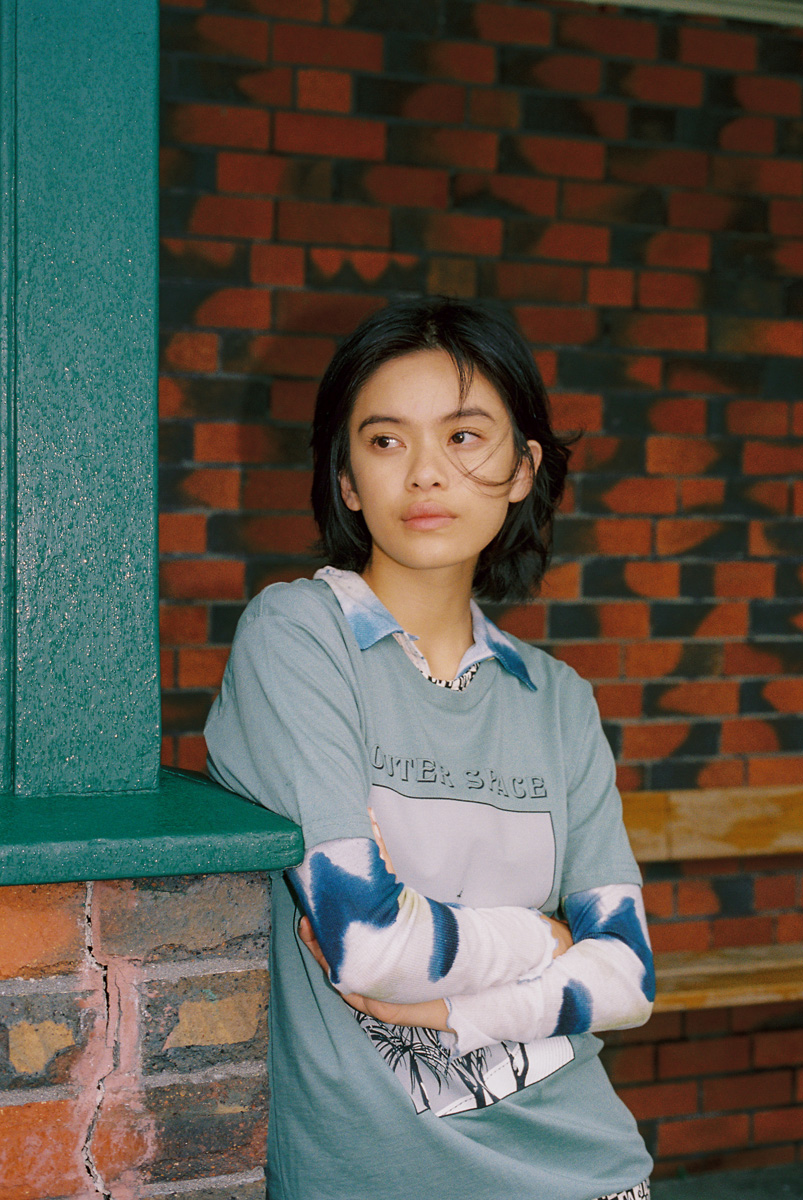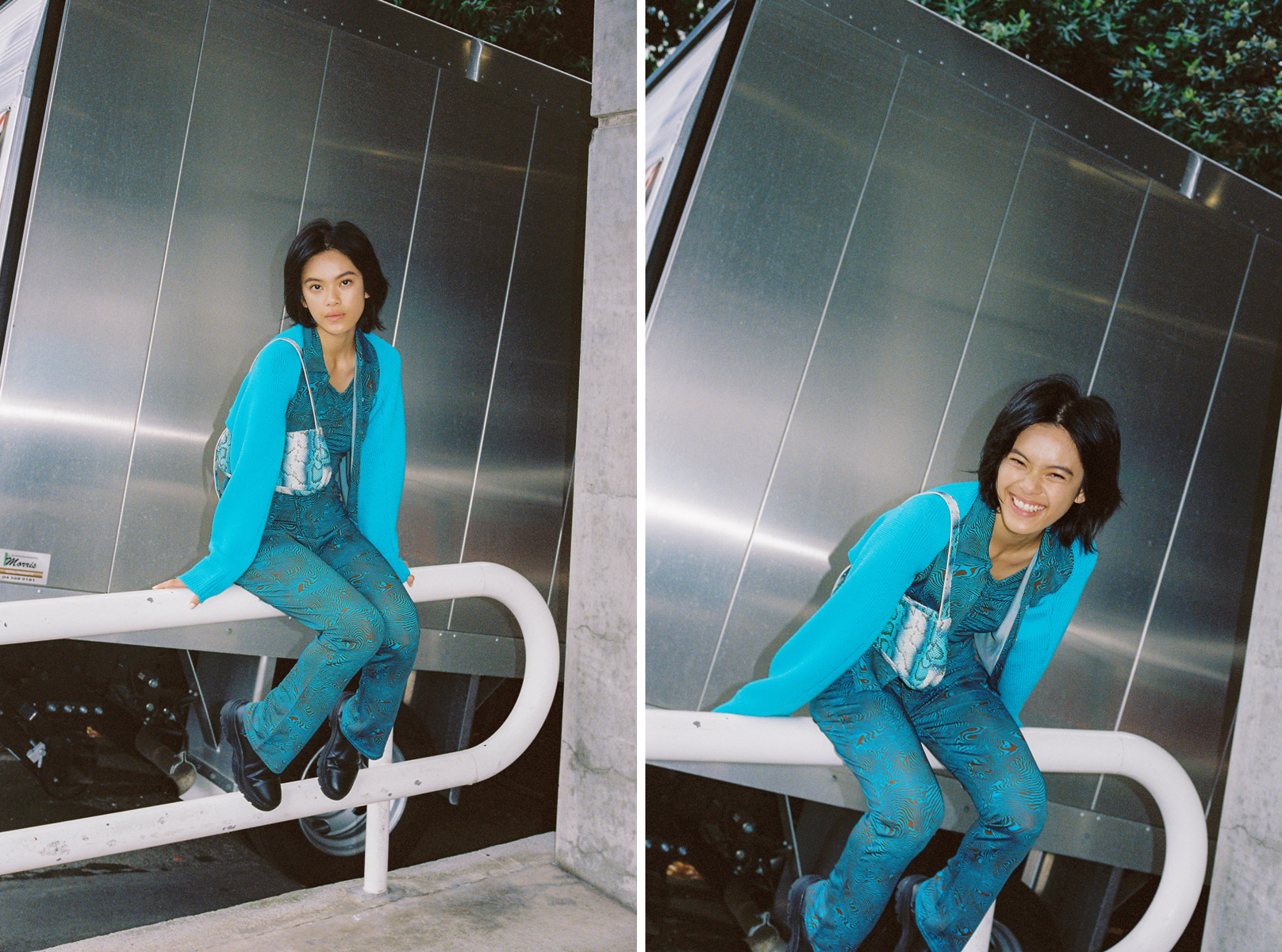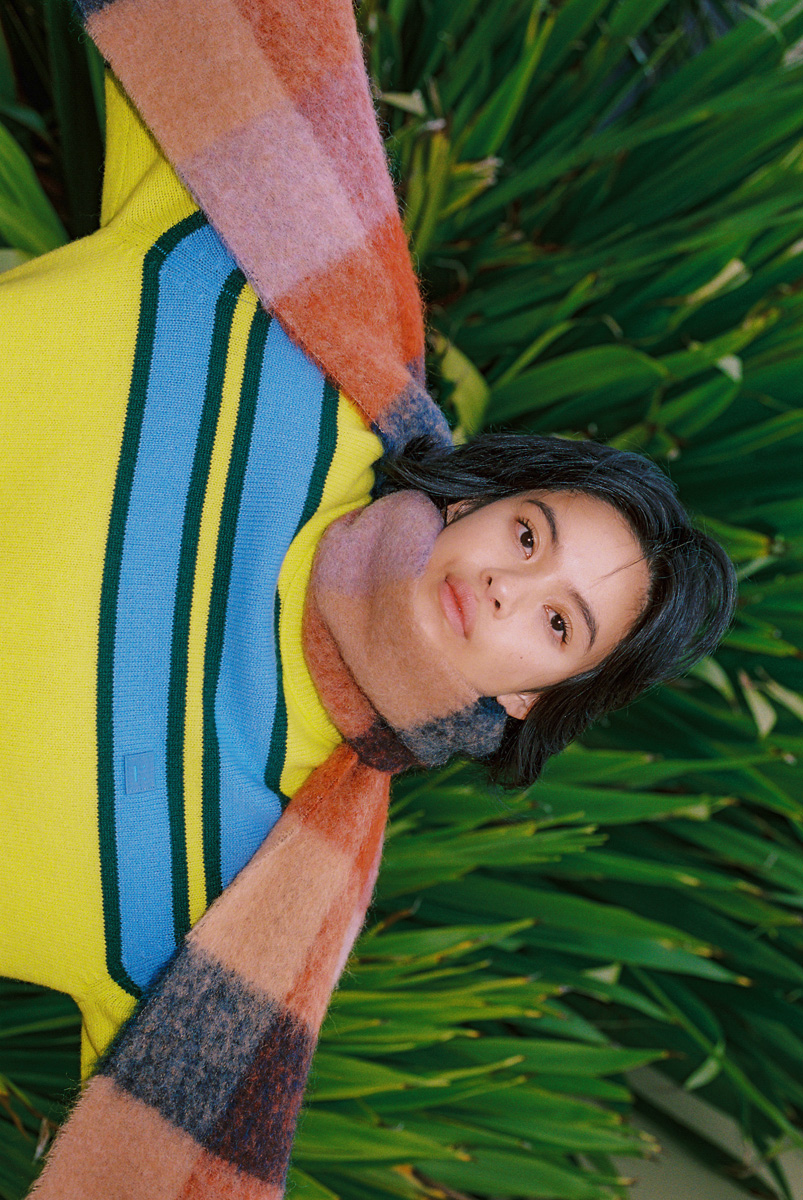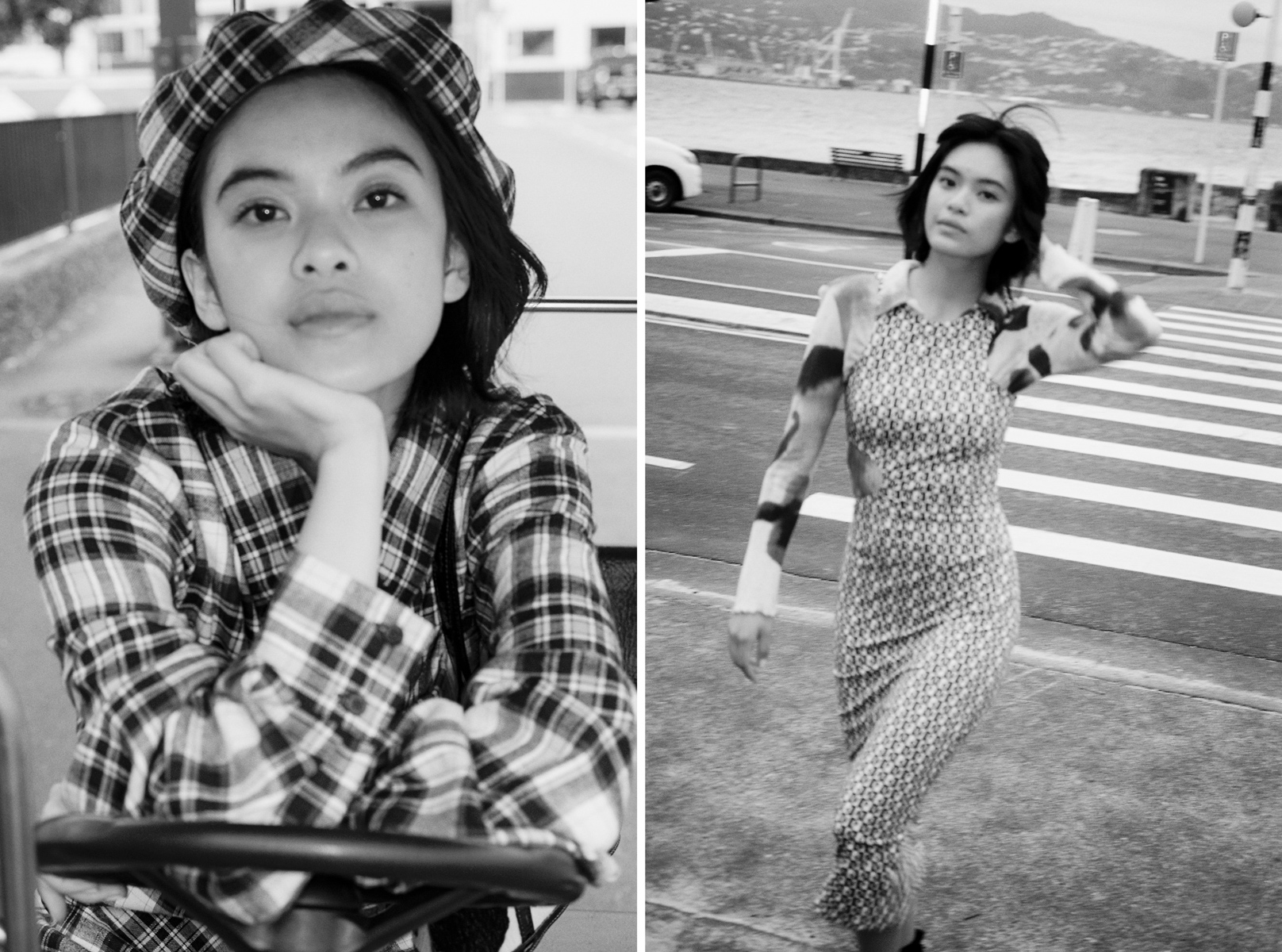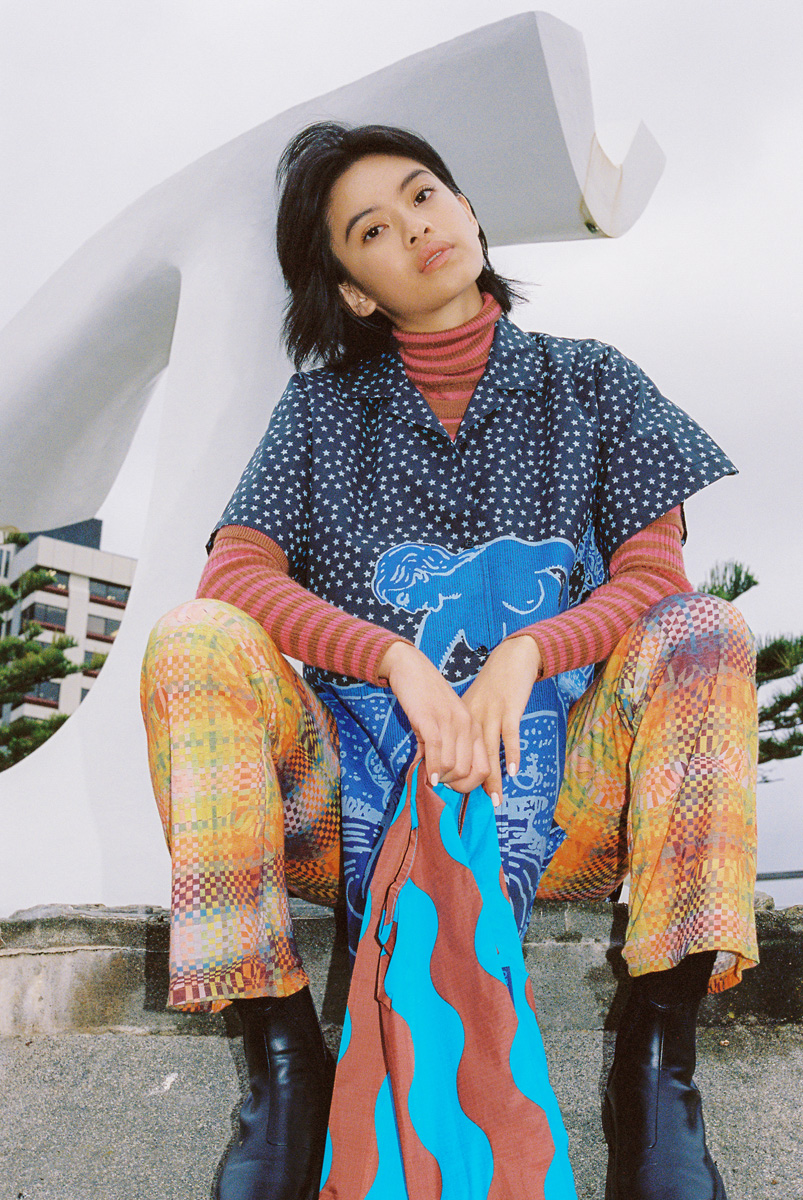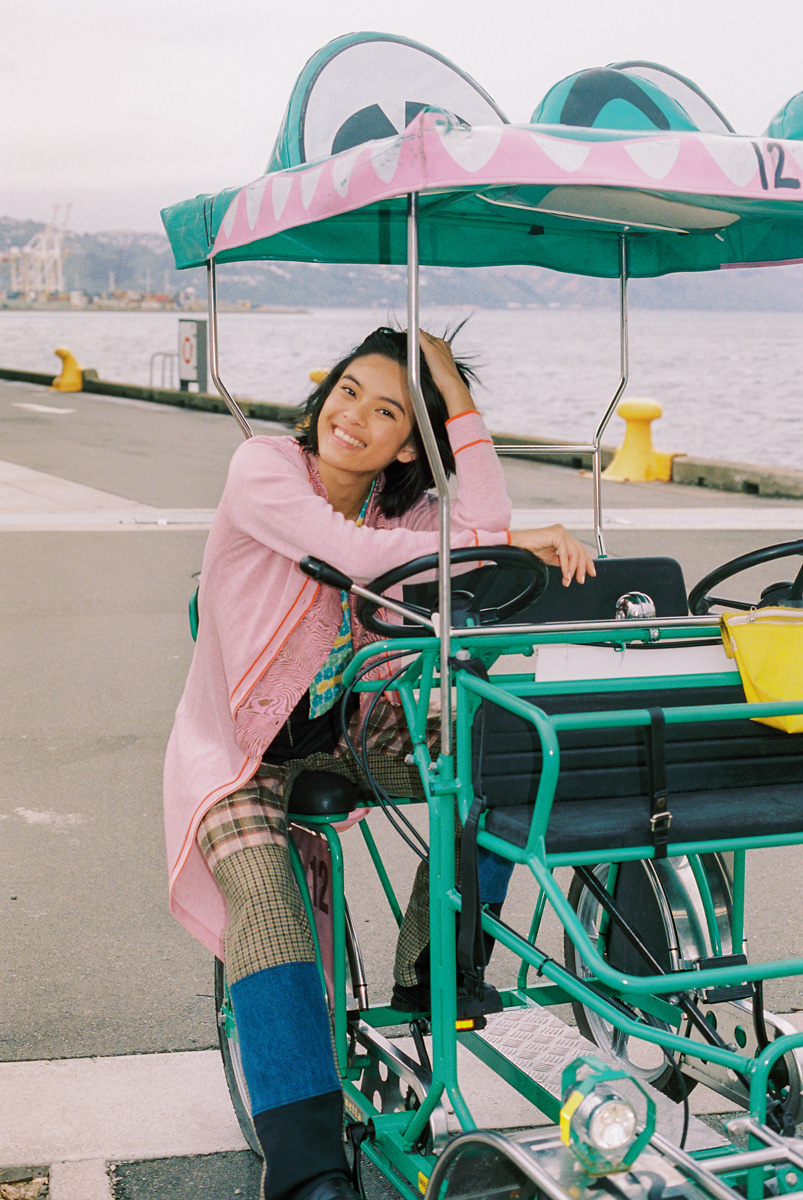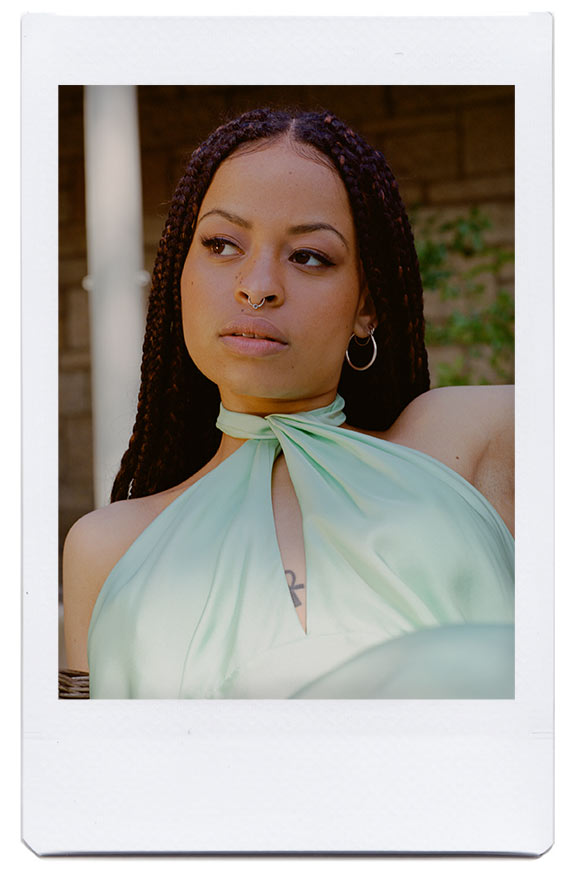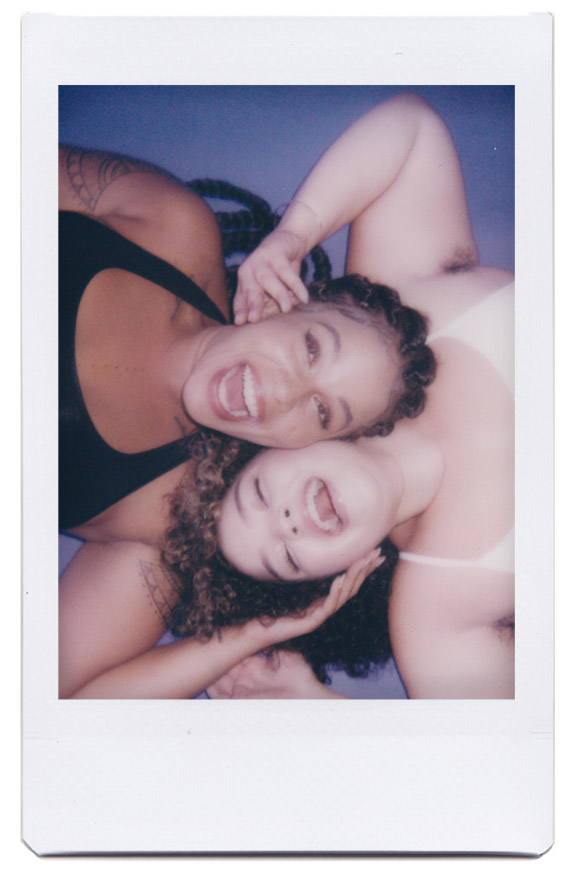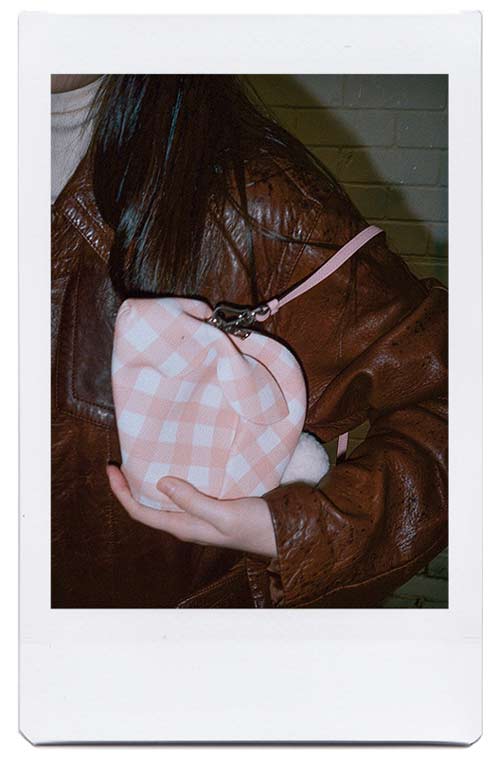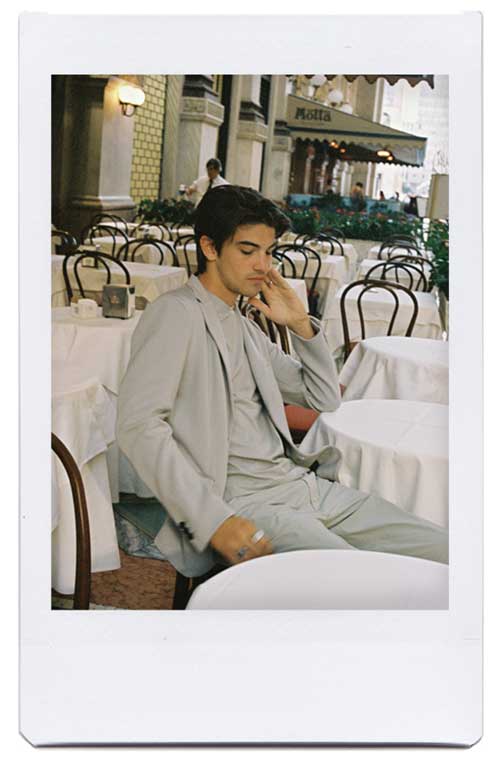We recently had the great fortune of snapping model and writer, Sabina Sysantos, in her hometown of Te Whanganui-a-Tara (aka Wellington). On a characteristically cloudy day in the New Zealand capital, the Index Magazine word wizard took local and international threads—from Kate Sylvester to Paloma Wool—for a spin around her favourite haunts, our camera there to capture all the magic along the way. As your eyeballs will confirm after viewing the above gallery, riding crocodile bikes around the harbour and The Albatross Fountain never looked so good, nor scootering through The Ngākau Civic Square so fun.
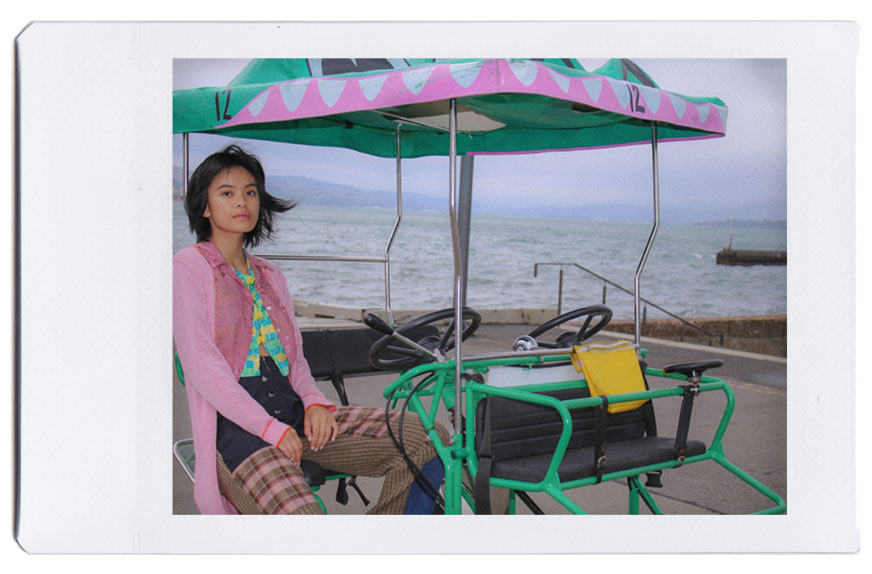
As has been the way for the past year, and despite New Zealand having returned to “normal life”, the conversation eventually took a turn towards the Covid-19 pandemic. While it’s true that we all are in the same storm, but not in the same boat, the pandemic has had an impact on everyone around the world. For Sabina, a bicultural woman with roots in both New Zealand and the Philippines, that has meant not being able to travel to the latter, her first home, and a place she has been travelling to every year of her life since moving to the former at age 9.
Sabina has lost her ability to move between her two homes as a result of the Covid-19 pandemic and strict border controls, but she’s also gained something just as important: a sense of community here in New Zealand. In the below essay, she talks through her own experiences of the Covid-19 and the broader complexities of immigrant identities during this time of global crisis…
“I was nine years old when my family and I moved to a different country. "We’re doing this because we want you to have a better life,” was the only way mum and dad could explain it. I had never heard of a place called New Zealand before. I was told there would be lots of sheep.
Now it's 2021, and the world is looking over at Aotearoa the same way my parents did all those years ago - as a beacon of hope.
For us in New Zealand, face masks and hand sanitizer haven't quite lost their novelty yet. We’ve had a total of four lockdowns so far, but for the most part we’ve been afforded the luxury of Normal Life since September last year. We’ve been so lucky to return to music festivals, fashion shows, drag balls, major sporting events, and everything in between. I got a real graduation ceremony in November. We got a proper Christmas and New Years. We got a whole summer with long days spent at jam-packed beaches and long nights out at crowded clubs.
Elsewhere in the world, life has been on pause for a year now. This time last year, I was making my way back to New Zealand after spending the summer in the Philippines. Both nations began controlling their borders days after I arrived.
I had been living back and forth between the two countries throughout my whole life. I really thought I was bicultural Hannah Montana getting the best of both worlds. But in a time where “stay home, save lives” was the mantra, the concept of ‘home’ was blurrier than ever to me.
I watched from afar as the number of cases in the Philippines were rising by the thousands each day. Health and education systems couldn't keep up, businesses were collapsing, and the government was failing. All my family and friends had to adapt to an entirely new way of living, and everything I knew about life in my homeland just didn't really exist anymore.
All I could really do was focus on my life in New Zealand, though I had always struggled to find a real sense of community here. I had the opportunities, education, and lifestyle I worked hard for, but I never really felt connected to the life I was living. Spending lockdown in a new apartment by myself and doing my last semester of uni online, I felt more detached than ever.
As the pandemic unfolded, our leaders made it clear that if there was any way to get through this, we were going to have to do it together. From that point on, the country was ruled by two words: Be kind. It was in the idea that your individual efforts were what was going to save somebody else's life, livelihood, or mental wellbeing. Supporting each other became our coping mechanism. It took a pandemic to prove it, but there was real power in empathy.
By the end of 2020, the best thing about living in New Zealand was not just that we had made it out the other end of the pandemic, but that we became a more thoughtful and considerate nation from it. There was a newfound sense of connection between everyone for simply having stuck it out together.
This approach towards togetherness changed everything for me. It allowed me to build a sense of community here over the last year, and feel the comfort and security that it comes with. I gained a sense of belonging that I had never had before, and this is what has allowed me to truly flourish since then.
Now that we’ve seen empathy and community really happen when we all needed it, it’s time we decided that this should be part of our “new normal”. We shouldn't have to wait for the next global crisis to be reminded that we’re capable of treating each other better. As destructive as the pandemic has been, the only way we can move forward from it is to see it as our chance to create the world we actually want to live in. This is our opportunity to rebuild a society that has been sick long before the Coronavirus existed.
As an Asian immigrant, I understand my privilege in being able to say that, more so now than ever, I feel safe in my adoptive country. There is much to be done, but we need to work towards a world where everyone in situations similar to myself can say the same. I feel so incredibly grateful to be here, and that I’m able to call New Zealand home.”
Essay: Sabina Sysantos Features Editor: Madeleine Woon Photos & Fashion: Chloe Hill
Sabina is represented by 62 Management
Shot on location in Wellington Te Whanganui-a-Tara, Aotearoa New Zealand

